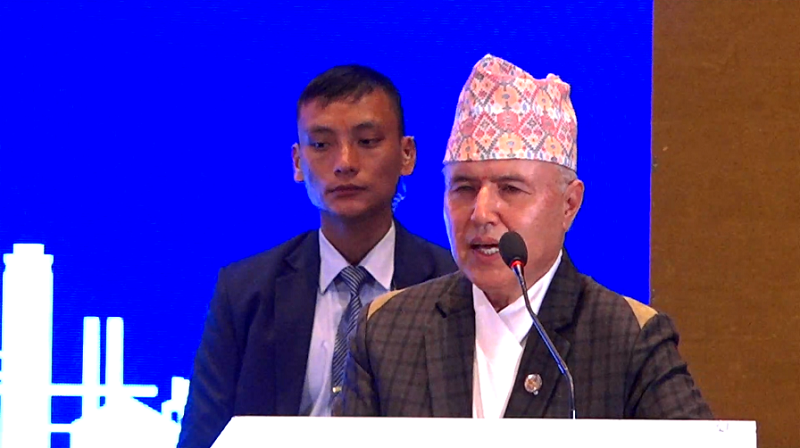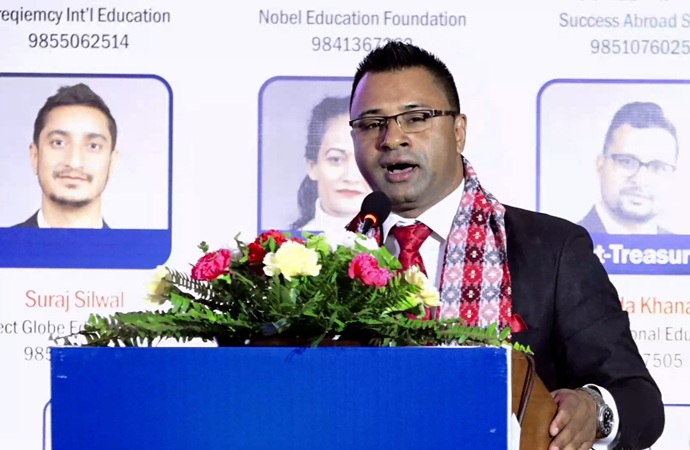Finance Minister Rameshore Khanal Outlines Sweeping Reforms for Enhanced Governance and Economic Efficiency
9th November 2025, Kathmandu
Finance Minister Rameshore Khanal has announced a major, comprehensive drive for systemic reforms across all government ministries in Nepal.
Finance Minister Economic Dialogue 2.0
Speaking at the prestigious Economic Dialogue 2.0, organized by the Federation of Nepalese Chambers of Commerce and Industry (FNCCI), Minister Khanal emphasized that the current administration is focused on enhancing efficiency, transparency, and service delivery to create a more business-friendly and citizen-centric environment. This ambitious agenda underscores the government’s recognition that bureaucratic streamlining is paramount to unlocking Nepal’s full economic potential.
A Commitment to Cross-Ministerial System Improvement
The Finance Minister stressed that this initiative is not confined to a single department but is a coordinated, government-wide effort. He highlighted the fundamental need for every ministry to review and upgrade its operational methods to ensure swift and accountable governance. The goal is to move beyond mere procedural adjustments to achieve a fundamental systemic overhaul.
“System improvement is taking place in every ministry,” Minister Khanal affirmed during his address. This commitment to widespread reform suggests a recognition that economic bottlenecks often stem from inefficient bureaucratic processes that span multiple departments. By tackling these issues concurrently, the government aims to create a more integrated and responsive public service delivery mechanism that directly supports national economic objectives, including job creation and sustainable prosperity.
Customs Administration: The Flagship of Reform
Within the Ministry of Finance, a key area slated for immediate and fundamental reform is customs administration. This is a critical sector, as customs procedures significantly impact the cost of imports and exports, directly affecting the competitiveness of Nepalese businesses and the country’s overall trade balance.
The Minister explained that rigorous efforts are underway to fundamentally reform the customs system. The primary objectives of this crucial reform are twofold:
Reducing Operational Costs: Streamlining procedures, adopting digital tools, and minimizing bureaucratic layers to lower the expenses associated with clearing goods. This will directly translate to cheaper raw materials for manufacturers and lower prices for consumers.
Improving Service Delivery: Enhancing the speed, predictability, and transparency of the customs process. Quicker clearance times are vital for businesses relying on timely supply chains, boosting efficiency across the industrial sector.
The modernization of the customs system is widely viewed by the private sector as essential. By making the process more cost-effective and less prone to delays, the government is signalling a clear intent to facilitate trade and remove a long-standing constraint on national economic growth.
Expanding Tax Access: Bringing Services Closer to Citizens
A major immediate reform aimed at improving the ease of doing business and promoting fiscal compliance is the aggressive expansion of tax payment and registration points across the country. Recognizing the geographical difficulties citizens and small businesses often face, the government is dramatically increasing accessibility to core tax services.
The Minister detailed the specific steps taken to make tax payment and the acquisition of Permanent Account Numbers (PAN) more accessible:
Current Accessibility: As an immediate and crucial reform, tax filing and PAN registration services have already been successfully expanded to all 77 districts of Nepal. Furthermore, this facility is now available in approximately 120 major market centers. This wide-scale implementation immediately eases the burden on entrepreneurs and businesses who previously had to travel long distances to access these vital services.
Future Expansion Goal: Looking ahead, Minister Khanal committed to a comprehensive expansion plan, stating that within a year, this facility will be expanded to all 753 municipalities nationwide.
This commitment to decentralization and accessibility is a crucial step towards fostering a culture of tax compliance. By simplifying the payment process and reducing the geographical barriers to obtaining a PAN registration, the government is not only making it easier for citizens to fulfill their fiscal duties but also encouraging the formalization of smaller businesses, which is vital for long-term economic transparency and growth.
Partnership for Prosperity: Government and Private Sector
Concluding his address, Minister Khanal emphasized the indispensable nature of collaboration between the public and private sectors. He articulated a clear vision where the government and the private sector must operate not as adversaries, but as partners in achieving the shared goals of the nation.
The Minister highlighted the tripartite objectives that depend on this cooperation: economic development, prosperity, and employment generation. The systemic reforms currently underway, from transparent customs procedures to decentralized tax services, are designed precisely to build the trust and efficiency required for this partnership to flourish. By creating a predictable and enabling regulatory environment, the government empowers the private sector to drive investment, innovation, and job creation, thereby serving as the engine of Nepal’s economic future.
The comprehensive nature of these reforms, touching every ministry and focusing on high-impact areas like customs and tax accessibility, marks a serious governmental commitment to institutional modernization—a necessary precursor to sustained national prosperity.
For More: Finance Minister Economic Dialogue 2.0







